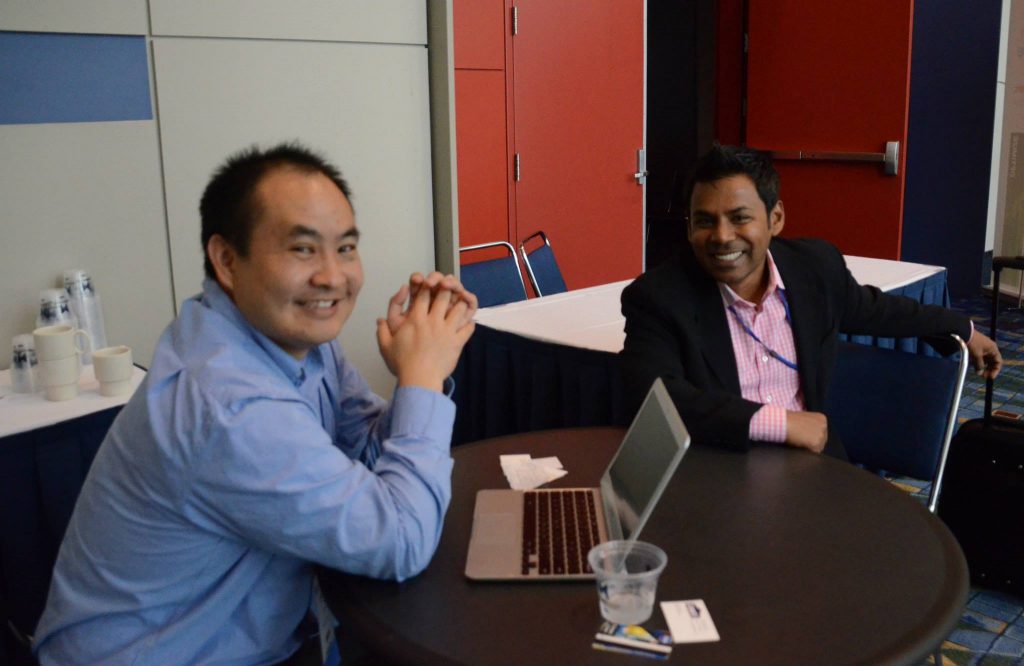Especially if you’re a consultant or small agency, you have a lot of people wanting to sit down with you for a free consultation.
You probably even have a form where they can book a free initial consultation with you.
But most of these appointments end up from folks who don’t want to pay, aren’t qualified, are difficult to work with or need something other than is your core skill.
You waste a lot of time doing these, but don’t see another way.
After all, isn’t it reasonable to give them a chance to tell you what they’re looking for and then for you to explain what you do?
And certainly, you’d expect to answer their various questions to demonstrate your competency, show you care, and determine if there’s a fit.
So most agencies are resigned to this charade, accepting that if they do enough free consults, they’ll generate enough clients.
But the reality is they are wasting most of their time on freetards instead of taking care of their best customers.
And here’s the solution to avoid all this pain…
Have a low-priced tripwire to qualify them.
We charge $1000 for a mini-consultation and are not ashamed of the price.
To have me and another team member run them through the Strategy Assessment, get access to their accounts, perform quick analysis, get on the phone with them for an hour, and summarize the key points in notes we send later is super high value if they:
- Are spending enough money that a few quick fixes and tips would be worth many times this fee– anyone spending more than $10K a month, it’s a no-brainer.
- Value their own time and that of others– they could read free blog posts and buy courses here and there, trying to figure things out themselves.
- Have true urgency– sales professionals talk about BANT (budget, authority, need, timeframe) to qualify leads, while we use the “emergency room” analogy.
You already know all the reasons why a potential lead may balk at the tripwire. They:
- Expect you to volunteer your time, just like other vendors they call up, to meet– after all, they are dangling money in front of you.
- Believe their needs are unique-– so they believe they need a unique solution and that “custom” somehow means better.
- Don’t have the money-– or related, they expect that you’re only $20/hour (I get that a lot still).
- Never intended to pay— in my youthful days, I’ve had many gleefully abscond with free consulting, like you’d make off with free samples from the little old ladies at Costco.
But you’re a pro.
You have:
- Demonstrated your expertise in certain areas— published prominently, not because you merely say you’re a pro.
- Built a series of checklists that you follow, which you carefully select from, depending upon the situation.
- Have a team of people who are certified in specific areas— being clear about what they can do and what they can’t.
Like an emergency room doctor:
- Your skills and expertise are what matter— not the brand of scalpel you use.
- You don’t go canvassing door to door, peddling heart operations at 50% off if they buy today.
- Have procedures and processes up-front, since the patient isn’t going to dictate what surgery to perform, how to perform it, how long it will take, or the price.
Treat yourself like a doctor and command the respect that you’ve earned.
Kyler Patterson of HostGator learned first-hand why you should have these points in place:
Don’t give away too much without getting money first. One of my first potential clients askedme for a proposal of what I’d do to turn around his ads. I poured over data that night and wrote out a bunch of things I would implement.
He replied saying he was going to go the agency route instead of a consultant. I checked his account two days later, he had implemented a bunch of my suggestions.Now I don’t give specifics unless I’m paid. If I need to give more details, I’ll go high level, and require a formal call if they want the juicy information.Probably seems obvious, but as a new freelancer at the time, I thought I needed to do everything I could to win the contract. Instead, I gave away all the magic for free.
But if you don’t have proof, a clear process, and a skill that’s demonstrated for all to see, then it’s okay to take on these free meetings.
Do them to help you build up your reputation such that all your business is inbound– people coming to you because you have authority in a particular area.
Gavin Bell of Blue Cliff Media discovered this for himself once he started charging for his time:
People really aren’t bothered about paying to talk to me. $150 for an hour with me seemed
ridiculous to myself a few months ago. Now I’m starting to think that even this is too cheap! Yes, there are some people that can’t afford it, that’s okay. I shouldn’t be focusing on the people that can’t afford it, and instead, I should focus on the people that CAN.
Some of the people I’ve spoken to are using the hour to see how we can work together going forward… WHAT! People PAYING me, to see if they can work with me?! Charging for my time is actually giving me authority.
Have you set up a “tripwire” to filter your potential leads from the time-wasters?

 me for a proposal of what I’d do to turn around his ads. I poured over data that night and wrote out a bunch of things I would implement.
me for a proposal of what I’d do to turn around his ads. I poured over data that night and wrote out a bunch of things I would implement. ridiculous to myself a few months ago. Now I’m starting to think that even this is too cheap! Yes, there are some people that can’t afford it, that’s okay. I shouldn’t be focusing on the people that can’t afford it, and instead, I should focus on the people that CAN.
ridiculous to myself a few months ago. Now I’m starting to think that even this is too cheap! Yes, there are some people that can’t afford it, that’s okay. I shouldn’t be focusing on the people that can’t afford it, and instead, I should focus on the people that CAN.